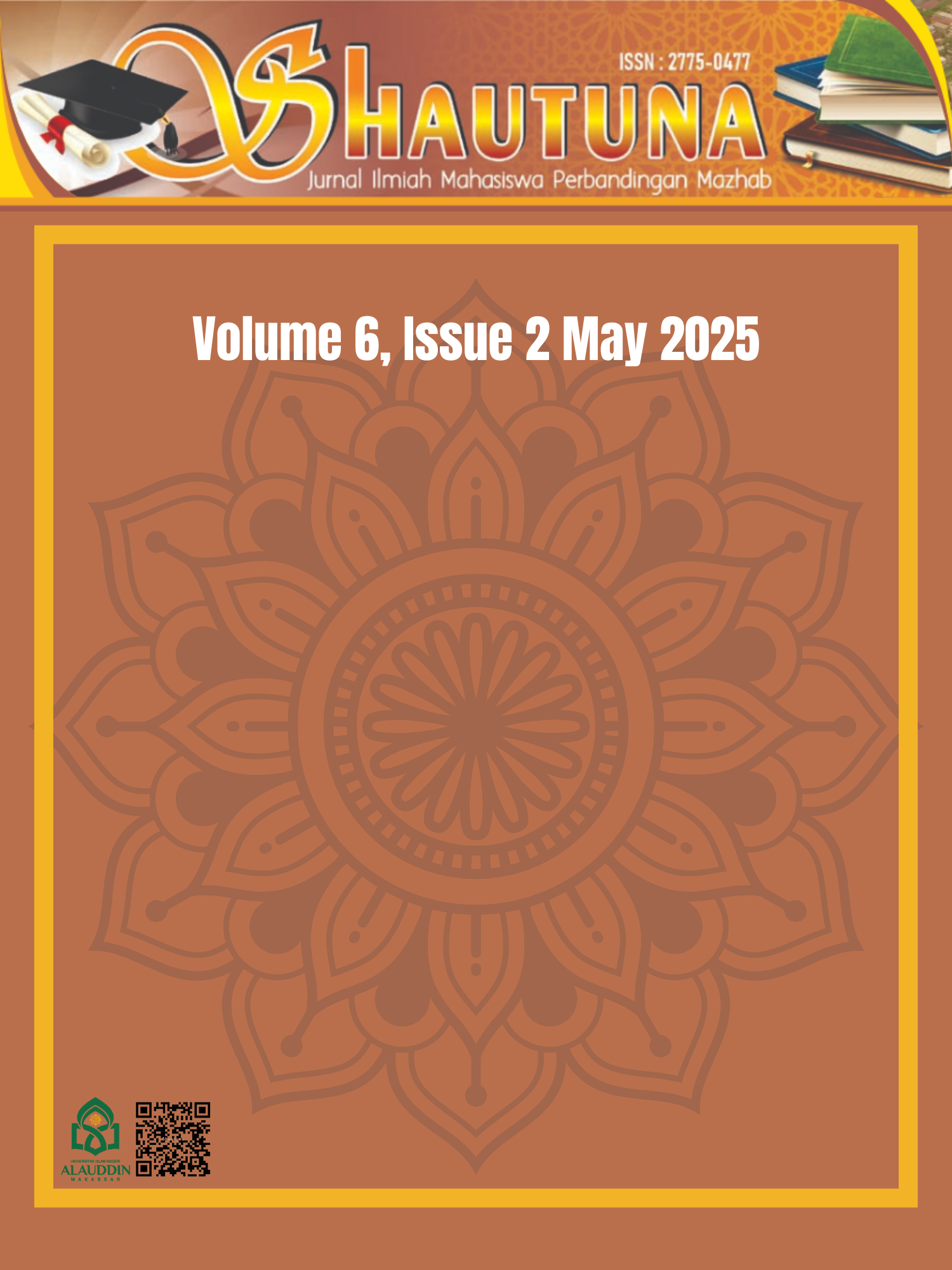Governor Regulation Number 2 Of 2025 and the State Civil Apparatus' Polygamy Policy
A Comparative Study of Positive Law and Islamic Law
DOI:
https://doi.org/10.24252/shautuna.v6i2.55532Keywords:
Governor Regulation No. 2 of 2025, Polygamy Policy, State Civil Apparatus, Positive Law, Islamic LawAbstract
Governor Regulation Number 2 of 2025 regulates the procedures for granting marriage and divorce permits for the State Civil Apparatus in the Special Capital Region of Jakarta, including policies regarding polygamy. In Indonesian positive law, polygamy is permitted with strict requirements, such as the consent of the first wife, urgent reasons, and permission from authorized officials. On the other hand, in Islamic law, polygamy is permitted with a maximum limit of four wives, with the main provision being justice in material and emotional aspects. This study aims to compare the regulation of polygamy in Governor Regulation Number 2 of 2025 with the principles of Islamic law and examine its impact on the State Civil Apparatus and their families. Using a juridical-normative research method and a theological approach, this study referred to positive legal sources such as the Marriage Law and Government Regulations, as well as the arguments in Islamic law that regulated polygamy. The results of the study showed that although positive law and Islamic law both recognize polygamy, there were significant differences in their requirements and implementation. Positive law emphasized strict administrative control to prevent abuse, while Islamic law provided space with conditions of justice that are difficult to fulfill absolutely. Presenting this Governor Regulation as a real effort by the government to control the practice of polygamy in the State Civil Apparatus environment in the Special Capital Region of Jakarta, in order to maintain family stability and the professionalism of civil servants.
References
AD, Mhd Irfan, and Afdhalia Mahatta. “Konsep Keadilan Dalam Poligami (Telaah QS An-Nisa Ayat 3).” Sakena: Jurnal Hukum Keluarga 9, no. 1 (2024): 53–60. https://journals.fasya.uinib.org/index.php/sakena/article/view/582.
Aini, Supiatul, and Abdurrahman Abdurrahman. “Rasionalitas Perintah Ayat Poligami: Kajian Pemikiran Tafsir Muhammad Abduh.” Al-Irfani: Journal of Al Qur’anic and Tafsir 2, no. 2 (2021): 24–45. https://doi.org/10.51700/irfani.v2i2.313.
Andi Airiza Rezki Syafa’at, Aisyah Kara, Asni, Kurniati, and Indo Santalia. “Konsep Poligami Menurut Pandangan Perempuan PNS Di Kota Makassar Terhadap Peraturan Pemerintah No. 45 Tahun 1990 Pasal 4 Ayat (2) Perspektif Maqasid Al-Syari’ah.” Al-Ubudiyah: Jurnal Pendidikan Dan Studi Islam 5, no. 2 (2024): 175–202. https://doi.org/10.55623/au.v5i2.361.
Aqil, Izan Syarifurrohman. “Pengetatan Poligami Di Indonesia Perspektif Maqashid Syariah Dan Hukum Positif.” MADDIKA : Journal of Islamic Family Law 4, no. 2 (2023): 1–10. https://doi.org/10.24256/maddika.v4i2.3994.
Arbie, Alfian, and Milhan Milhan. “Analisis Terhadap Pengabulan Izin Poligami Dengan Alasan Telah Menghamili Calon Istri Kedua (Telaah Putusan Nomor 41/Pdt. G/2019/PA. Rtg).” UNES Law Review 6, no. 1 (2023): 3443–51. https://doi.org/10.31933/unesrev.v6i1.1138.
Downloads
Published
How to Cite
Issue
Section
License
Copyright (c) 2025 Nurul Mujahidah, Muhammad Safaat Gunawan

This work is licensed under a Creative Commons Attribution 4.0 International License.









